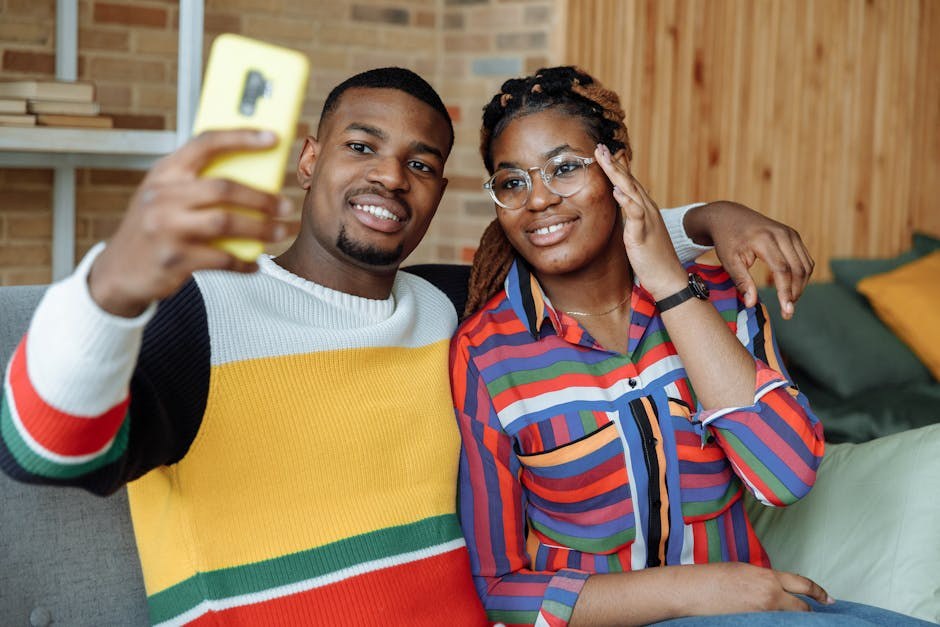Modern romance isn’t confined to dinner reservations and shared desserts – it starts long before the first hello and lingers long after the check is paid. Many people wonder why promising sparks keep fizzling, yet overlook the everyday choices that steer conversations, shape first impressions, and set the tone for everything that follows. Some patterns feel harmless because they’re familiar, but they function like slow leaks in a tire. These are the subtle ways momentum drains away – the sort of toxic dating habits that seem normal because you’ve seen them repeated by friends, sitcom characters, and even yourself.
It helps to zoom out. Romance grows in the space between two authentic people, and that space is fragile. When you crowd it with scripts, hurry it with pressure, or dull it with distractions, connection has to fight for air. That’s why identifying toxic dating habits matters: not to scold yourself, but to replace reflexes that block intimacy with choices that invite it. Viewed this way, small shifts can change everything – from how you approach someone in a coffee shop to how you follow up after a great conversation.
Below is a refreshed look at behaviors many consider “just how dating works.” If you notice yourself in any of them, take a breath – awareness is already an improvement. You’re not broken; you’ve simply rehearsed certain moves so often that they feel natural. Naming these toxic dating habits creates room for better ones.

Common Patterns That Derail Connection
Before you decide that chemistry is elusive or that “everyone is flaky,” consider how familiar routines might be setting the stage. The aim isn’t to overhaul your personality – it’s to notice where automatic behavior squeezes out spontaneity, curiosity, or kindness. As you read, keep an eye on how these toxic dating habits show up in your own rhythms: in your opener, your planning style, your expectations, and your manners. Replace what doesn’t serve you, and you allow genuine interest to do the heavy lifting.
-
Chasing a Contact Instead of a Connection
When attraction hits across a café or at a friend’s birthday, many people lunge for what feels like the goal – a phone number. It’s a shortcut that can backfire. A number won under pressure often becomes a silent thread; you both leave with digits, not rapport. Shift the target. Lead with a moment of human exchange – ask about the book in their hand, comment on the playlist, or share a quick observation that opens the door. A few minutes of easy talk plants recognition so that any later message arrives with warmth rather than as a cold call. That tiny pivot defuses one of the most common toxic dating habits by putting presence ahead of acquisition.
-
Planning Like a Meeting Instead of a Meet-Cute
Scheduling a first date a week out can feel efficient – calendar locked, task checked. But romance rarely thrives inside a corporate frame. When details are fixed too early, anticipation cools and life intrudes. Try a lighter touch. Start by sharing that you’d like to meet, then confirm specifics closer to the day. This keeps the exchange active, lets both people notice ongoing interest, and protects the date from feeling like an obligation. Over-structuring is one of those quiet toxic dating habits that drains playfulness before you even clink glasses.

-
Insisting on a Narrow “Type”
Declaring you only click with a particular look, job, or vibe can feel like clarity – but it’s often a filter that screens out delightful surprises. People are multitudes; chemistry is weird. If your “type” hasn’t led to the partnership you want, experiment. Say yes to someone you might have scrolled past. Don’t audit the date for perfection – explore whether this person is easy to be around, whether conversation flows, whether you both feel at ease. Rigidity here is one of the sneakiest toxic dating habits because it disguises itself as self-knowledge while quietly closing doors.
-
Performing Instead of Relating
It’s tempting to treat a date like a stage – polishing stories, managing impressions, trying to impress with curated charm. The trouble is that performances require constant energy and create distance. A date isn’t an audition; it’s an encounter. Share who you are in this moment, not a “best-of” montage. Ask follow-up questions, admit what you don’t know, and let your quirks peek through. You’ll be easier to connect with, and you’ll learn whether you’re liked for the real you. Masking to win approval is one of those exhausting toxic dating habits that leaves both people unsure of what’s real.
-
Rolling Ten-Deep and Expecting Magic
Going out with a large crew can be fun – but it also builds a wall around you. Approaching someone embedded in a crowd feels risky; most will keep their distance. If you’re open to meeting people, choose smaller gatherings. Two or three friends create a friendlier perimeter and make it simple for someone to say hello. Treat the social setting as part of your strategy. Overcrowding your orbit is another of those unexamined toxic dating habits that makes opportunity feel out of reach.

-
Confusing “Perfect” With “Promising”
Many daters carry a cinematic template – an ideal partner assembled from preferences and plotlines. Real people never match the blueprint exactly, so they get rejected before they’re known. Try swapping perfectionism for curiosity. Ask: Do I feel calm around them? Do we trade laughter? Are our values compatible? Imperfections can be endearing when the fundamentals line up. Treating flaws as deal-breakers – while ignoring the qualities that make partnership strong – is one of the most reductive toxic dating habits, and it’s entirely optional.
-
Letting Drinks Drive the Night
Shared cocktails can loosen nerves, but excess blurs judgment, muffles boundaries, and hijacks conversation. Keep it light so your wise mind stays in charge. Nurse the first drink, hydrate, and prioritize clarity over bravado. You’ll remember the nuances – and your date will remember you as grounded rather than reckless. Overindulgence is a classic among toxic dating habits – it pretends to amplify chemistry while actually drowning it out.
-
Forgetting the Simple Grace of Manners
Politeness isn’t old-fashioned; it’s relational glue. Thank the host, acknowledge small courtesies, and be gracious about the check – whether you split, treat, or trade rounds. Attention to kindness communicates respect without fanfare. Neglecting these basics may not seem dramatic, but it’s one of the quieter toxic dating habits that erodes goodwill with surprising speed.
-
Letting the Past Dominate the Present
Ex talk tempts many daters – it’s familiar terrain and feels like context. But early on, it shifts focus from discovery to comparison. Keep the spotlight on who you are now and what lights you up. If the conversation drifts toward history, steer it gently back – “There’s a lot there; I’d rather hear about your favorite weekend ritual.” Dwelling on old relationships is one of those sticky toxic dating habits that freezes momentum in yesterday’s weather.
-
Playing Hard to Get Until Interest Gets Lost
A hint of mystery can be intriguing; deliberate opacity is frustrating. When someone reaches out sincerely, meet them with humane clarity. You can pace intimacy without weaponizing distance. If you’re interested, show it. If you’re undecided, say so and suggest a next step. Endless coyness belongs to toxic dating habits that mistake anxiety for allure – and it often sends good people home early.
-
Outsourcing Your Choice to Family Dynamics
Family opinions matter, but your romantic life is yours to live. If relatives prefer a certain background, timeline, or path, listen – then weigh their perspective against your values. You can appreciate guidance without abandoning your agency. Letting family veto curiosity is one of the most constricting toxic dating habits; it shrinks your world to keep the peace and leaves your heart under-consulted.
-
Monologuing Instead of Conversing
It’s natural to fill silences with your greatest hits, especially when nervous. But connection breathes on turn-taking. Share one story, offer a question, then pause long enough to hear the answer. Notice what lights your date up and follow that thread. You’ll come across as engaged and leave with a richer sense of who they are. Dominating airtime is a textbook example of toxic dating habits because it turns a duet into a solo.
How to Replace Unhelpful Patterns
Spotting toxic dating habits is step one; step two is building alternatives you can actually use when butterflies are sprinting. Think of these as micro-shifts – small, repeatable actions that change the feel of an interaction without asking you to become a different person. Practice them until they become your new normal.
Build First, Ask Second
Lead with presence. If you’re drawn to someone, open a tiny window of conversation. A sincere, situational comment sets a friendly tone and gives you both a quick read on vibe. If it feels good, then exchange details. This sequence converts a static contact into a living thread – a direct antidote to several toxic dating habits centered on rushing or collecting.
Plan With Flexibility
Trade rigid scheduling for a light cadence: express interest, float a day, confirm timing closer in. This rhythm keeps momentum without turning the plan into an obligation. It also creates multiple touchpoints where you can share a joke or a song – little bridges that make the eventual meeting feel natural rather than staged. Over-engineering is one of the sneakiest toxic dating habits; ease beats bureaucracy every time.
Expand Your Curiosity Radius
Give yourself permission to meet people outside your usual pattern. Curate less and experience more. Chemistry often arrives sideways – through a sense of comfort, a shared pace, or a surprising laugh. Guardrails can keep you safe; walls just keep you isolated. This mindset unclenches one of the most stubborn toxic dating habits: the myth that compatibility follows a checklist.
Show Up as the Usable You
On dates, aim for the version of yourself that friends actually get – not the highlight reel. If you forget a name, laugh; if you’re excited about a niche hobby, share a slice. Authenticity creates relief on both sides. You become easier to know, and your date gets permission to stop performing too. The performance spiral is among the most draining toxic dating habits; truth is lighter to carry.
Right-Size the Social Scene
If you hope to meet someone when you’re out, shape the environment to welcome approach. Smaller groups, accessible body language, and open circles during conversation make it simple for strangers to join without feeling intrusive. Massive entourages thwart serendipity – a classic pattern among toxic dating habits that looks lively while quietly repelling connection.
Prefer Real Compatibility Over Polished Fantasy
When you notice yourself grading someone against an ideal, switch the criteria. Ask whether they’re kind, curious, consistent, and fun to be around. Those qualities age well. Perfectionism might feel like high standards, but it’s often fear wrapped in logic. Rewriting this script dissolves one of the most blinding toxic dating habits and frees you to enjoy who’s in front of you.
Keep Your Head Clear
Decide before you meet how much you’ll drink – then keep that promise to yourself. Clarity lets you sense boundaries, read cues, and remember why the conversation felt special. You’re crafting a story you’ll want to retell, not a blur you’ll need to repair. Intoxication-led choices are among the oldest toxic dating habits for a reason – they’re easy, but they rarely help.
Let Courtesy Do Quiet Work
Small kindnesses ripple. Thank servers. Acknowledge effort. Be generous about preferences. Politeness isn’t performative; it’s how we make each other feel safe. Skipping this step doesn’t make you cool – it makes you careless. When you commit to everyday grace, you permanently retire one of the quietest toxic dating habits.
Keep the Spotlight on Now
There will be time to trade histories. Early on, privilege the present. Ask about favorite rituals, music that lives on repeat, foods that anchor comfort. When past relationships come up, acknowledge them briefly and pivot – not out of secrecy, but to guard the fragile beginnings of something new. Over-indexing on history is one of the stickiest toxic dating habits because it feels productive while blocking discovery.
Signal With Honesty
You don’t have to gush, but you do have to be legible. If you enjoyed yourself, say so and suggest what comes next. If you’re unsure, share that and offer a low-pressure plan. Respectful clarity trims confusion and invites reciprocity. Games of strategic distance belong to the theater of toxic dating habits; real interest is already compelling.
Center Your Choice Alongside Care for Family
It’s possible to honor your family and honor yourself – both can be true. Listen to concerns, then decide from your values. You’re the one who will build a life with this person, not a committee. Reclaiming agency breaks another link in the chain of toxic dating habits that keep your heart on the sidelines.
Make Space in the Conversation
Use the simplest tool in the kit: ask, then listen. Follow answers with curiosity rather than a competing anecdote. Notice the details you want to remember. The aim isn’t to impress – it’s to understand. When you leave gaps for the other person’s story, you give the budding connection oxygen. Talking over someone is a hallmark of toxic dating habits; sharing the floor invites trust.
Putting It All Into Practice
Change doesn’t require grand gestures. It thrives on thoughtful tweaks – a gentler approach, a shorter lead time, a softer expectation. If several of these descriptions felt uncomfortably familiar, that’s good news. It means you’ve found levers you control. Replace a handful of toxic dating habits with kinder, braver alternatives and the whole experience shifts – messages feel easier to send, plans feel livelier, first meetings feel less like tests and more like possibilities.
Carry this with you: connection is built in small moments – the genuine smile, the attentive pause, the unhurried reply. When you trim the rituals that suffocate those moments, you make space for something simple and sturdy to grow. That’s the quiet power of noticing toxic dating habits and choosing differently – not to become someone else, but to let who you already are be easier to meet.